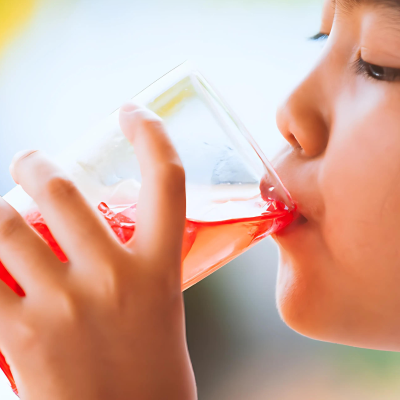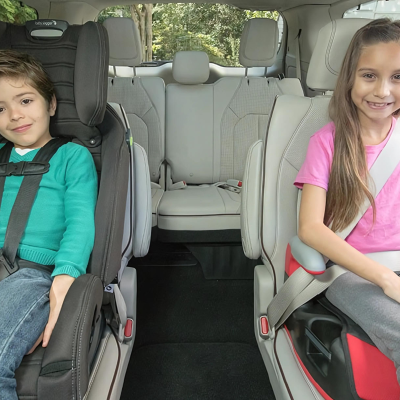The sight of a baby blowing raspberries—making that playful, buzzing noise by blowing air through closed lips—can be both amusing and perplexing for parents. While it might seem like just another cute behavior, blowing raspberries is an important developmental milestone that offers valuable insights into your baby’s growth. Understanding why babies blow raspberries and what it signifies about their development can help you appreciate this phase and support your child’s ongoing progress.
In this comprehensive article, we will explore the reasons behind this behavior, its developmental significance, and how you can encourage your baby’s speech and motor skills. We’ll also cover when to expect this milestone and what it means for your baby’s overall growth.
What Are Raspberries?
Blowing raspberries, also known as “tongue thrusts” or “blowing bubbles,” involves making a noise by blowing air through the lips while the tongue is pressed against them. This action creates a vibration that produces a sound similar to a raspberry, hence the name. It’s a playful and often messy behavior that is usually accompanied by smiles and laughter.
How Do Babies Blow Raspberries?
To blow raspberries, a baby:
- Puckers Their Lips: The baby forms their lips into a tight, rounded shape.
- Blows Air: They blow air through their lips, which causes them to vibrate.
- Creates a Sound: The vibration of the lips produces a buzzing sound that resembles a raspberry.
This behavior is often accompanied by facial expressions and can be a fun way for babies to engage with their caregivers and explore their vocal abilities.
When Do Babies Start Blowing Raspberries?
Babies typically start blowing raspberries between 4 to 6 months of age. However, the exact timing can vary from one baby to another. Here’s a general timeline of what to expect:
1. Early Motor Skills (0-3 Months)
In the first few months, babies are primarily focused on developing basic motor skills and reflexes. They may make cooing sounds and experiment with different vocalizations, but blowing raspberries is not yet part of their repertoire.
2. Exploration of Sounds (4-6 Months)
Around 4 to 6 months, babies begin to experiment with their vocal cords and mouth movements. This is when blowing raspberries often starts. They are exploring different ways to make sounds and discovering how their mouth, lips, and tongue can create various noises.
3. Enhanced Control (6-9 Months)
As babies gain more control over their mouth and tongue, their ability to blow raspberries becomes more refined. They may blow raspberries more frequently and with greater enthusiasm during this stage.
4. Advanced Skills (9-12 Months)
By 9 to 12 months, blowing raspberries is well established as a playful behavior. Babies often use this skill to engage with their caregivers, play games, and express themselves.
Why Do Babies Blow Raspberries?
Blowing raspberries serves several important purposes in a baby’s development. Here are some key reasons behind this behavior:
1. Exploring Vocal Abilities
Blowing raspberries is a way for babies to explore and experiment with their vocal abilities. It helps them learn about how their mouth and lips can produce different sounds and sensations. This exploration is a crucial step in developing more complex speech and language skills.
2. Developing Motor Skills
Creating raspberries involves fine motor skills, including the coordination of the lips, tongue, and breath control. As babies practice blowing raspberries, they improve their ability to control these movements, which is important for other skills like speaking, eating, and drinking.
3. Understanding Cause and Effect
Blowing raspberries helps babies understand the concept of cause and effect. They learn that blowing air through their lips produces a specific sound and reaction, which can be reinforced by the laughter and attention they receive from caregivers.
4. Engaging with Caregivers
Blowing raspberries is often used as a form of social interaction. Babies enjoy the positive reactions and engagement from their caregivers when they blow raspberries. This interaction helps strengthen the bond between the baby and their caregivers and supports social development.
5. Expressing Emotions
Blowing raspberries can be a way for babies to express their emotions, such as excitement, joy, or curiosity. It’s a playful behavior that allows them to communicate and share their feelings with those around them.
How to Encourage Your Baby to Blow Raspberries
If you want to encourage your baby to blow raspberries and support their development, there are several strategies you can use:
1. Model the Behavior
Demonstrate blowing raspberries to your baby. Make exaggerated raspberry sounds and facial expressions to capture their attention. Babies often learn by imitation, so showing them how it’s done can inspire them to try it themselves.
2. Play Interactive Games
Incorporate blowing raspberries into interactive games. For example, you can play a game where you take turns blowing raspberries on each other’s cheeks or tummy. This makes the behavior fun and engaging for your baby.
3. Use Mirrors
Babies enjoy looking at themselves in mirrors. Use a mirror to show your baby how blowing raspberries looks and sounds. This visual feedback can help them understand the behavior and encourage them to try it.
4. Encourage Exploration
Provide opportunities for your baby to explore different sounds and vocalizations. Sing songs, make funny noises, and engage in playful interactions that involve blowing raspberries. The more exposure they have, the more likely they are to experiment with this behavior.
5. Respond Positively
When your baby blows raspberries, respond with enthusiasm and positive reinforcement. Praise them, laugh, and show excitement to encourage them to continue exploring and practicing their new skill.
What Does Blowing Raspberries Indicate About Your Baby’s Development?
Blowing raspberries is a positive indicator of several aspects of your baby’s development:
1. Language Development
Blowing raspberries is an early step in language development. It shows that your baby is beginning to understand how to use their mouth and vocal cords to produce different sounds. This exploration is an important precursor to developing more complex speech and language skills.
2. Motor Skill Development
The ability to blow raspberries involves fine motor skills and coordination. It demonstrates that your baby is developing better control over their mouth and tongue, which will be beneficial for future skills like eating solids and speaking clearly.
3. Social Interaction
Blowing raspberries is a form of social interaction. It indicates that your baby is engaging with others and enjoys the reactions they receive. This behavior helps build social connections and supports emotional development.
4. Cognitive Development
The act of blowing raspberries involves understanding cause and effect. Your baby learns that blowing air through their lips produces a specific sound and reaction. This cognitive skill is important for problem-solving and learning about the world around them.
When to Be Concerned
While blowing raspberries is generally a normal and healthy behavior, there are a few situations where you might want to seek advice from a healthcare professional:
1. Delayed Development
If your baby is significantly behind in reaching other developmental milestones, such as babbling, sitting up, or crawling, it may be worth discussing with a pediatrician. Delayed development in multiple areas could indicate a need for further evaluation.
2. Lack of Social Engagement
If your baby is not showing interest in engaging with others or responding to social interactions, it may be a sign of an underlying issue. Blowing raspberries is often a social behavior, so a lack of interest in this activity could warrant further investigation.
3. Hearing Concerns
If you notice that your baby is not responding to sounds or vocalizations, it could be a sign of hearing issues. Blowing raspberries requires the ability to hear and produce sounds, so any concerns about hearing should be addressed with a healthcare professional.
4. Physical Discomfort
If your baby seems to be in discomfort or distress while blowing raspberries, it could indicate an issue with their mouth or throat. In such cases, it’s important to consult a pediatrician to rule out any underlying problems.
Supporting Your Baby’s Development Beyond Blowing Raspberries
Blowing raspberries is just one of many milestones in your baby’s development. To support their overall growth and development, consider these additional activities:
1. Encourage Early Speech and Language Skills
Continue to engage your baby in activities that promote speech and language development. Talk to them regularly, read books together, and sing songs. This exposure helps build their vocabulary and communication skills.
2. Foster Fine Motor Skills
Provide opportunities for your baby to practice fine motor skills. Offer toys that encourage grasping, squeezing, and manipulating objects. Activities like stacking blocks or playing with textured toys can help improve their dexterity and coordination.
3. Promote Social Interaction
Encourage social interaction with other children and adults. Arrange playdates, attend group activities, and provide opportunities for your baby to engage with others. Social interaction supports emotional and social development.
4. Support Cognitive Development
Stimulate your baby’s cognitive development with activities that involve problem-solving and exploration. Provide toys that encourage cause-and-effect play, such as toys that make noise when pressed or moved.
5. Be Patient and Supportive
Every baby develops at their own pace, so be patient and supportive as they reach new milestones. Celebrate their achievements and provide encouragement as they continue to explore and learn.
Conclusion
Blowing raspberries is a delightful and important developmental milestone that reflects your baby’s growing vocal abilities, motor skills,
and social engagement. Understanding the reasons behind this behavior and how it fits into your baby’s overall development can help you appreciate this phase and support their growth.
By encouraging exploration, providing positive reinforcement, and engaging in interactive play, you can help your baby continue to develop their language and motor skills. Remember that each baby is unique, and reaching milestones at their own pace is a normal part of development. Enjoy the playful moments and celebrate each new achievement along the way.




